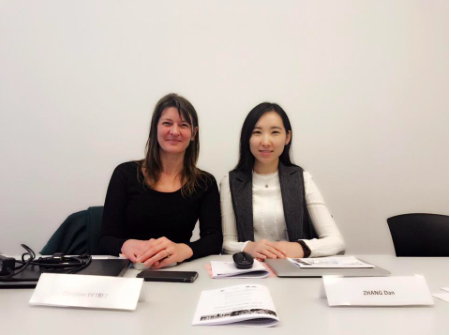
Title: "A Fresh Prince": the culture of love in France and China today
Directors: Guorui FAN, Dan ZHANG & Christine DETREZ
Discipline: Sociology
Status: Completed Project
Starting date: 2017
Directors
Summary
Since Durkheim, sociology has set as a programm to deconstruct the evidence and to denaturalise what seems natural: taste and disgust (Bourdieu, 1979), body (Détrez, 2002), health and sickness (Carricaburu, Ménoret 2004), feelings (Montandon, 1992) and so on... Sociologists, anthropologists or historians have thus studied how pain (Baszanger, 2002) or smell (Corbin, 1987) are cultural, and Becker's analysis of marijuana smocking pleasure (Becker, 1963) is now a standard of the discipline. If food taste or cultural practices are culturally constructed, what about love? Against all odds, love can also become a sociological object. Studies have already shown how love at first sight does not happen randomly (Bozon, Héran, 2006): most of the time, we fall in love with people like us. Love feelings need social conditions to exist, but also historical conditions. Love can thus be considered as a social and cultural practice. If comparisons were often made with earlier periods, it seems particularly interesting to adopt a comparative dimension between two different countries, France and China, in a project at the crossroads of the sociology of education, sociology of gender, and sociology of culture.
The situation in France and China seems actually very different: pressure on women about marriage remains extremely strong in China. However, the increasing numbers of unwed women in China has been largely accredited to the growing of the educated middle class. Some research have investigated the effect of education on women's marriage, with quantitative surveys (Cai and Tian, 2013; Yu and Xie, 2013) or qualitative ones (Fincher, 2014; Gaetano, 2010, To, 2013; Ji, 2015).
In France, social pressure on marriage seems less heavy for girls and women. Our project is thus to consider, through cultural productions, how children and teenagers learn the sentimental and domestic standards in France and China, and how these evolve and move. Our goal is to study the role of cultural productions considered as mirrors of the evolutions, but as well as engines of those. Since the Cultural Studies, sociology of cultural practices (Détrez, 2014), and then sociology of childhood (Sirota, 2006; Massei, 2015) have described people agency: stereotypes say nothing about how they are received. If agency is an operational concept in this case, practices of appropriation are worth being apprehended empirically. That's why our survey will combine the study of several cultural productions corpus with interviews of children and teenagers.







